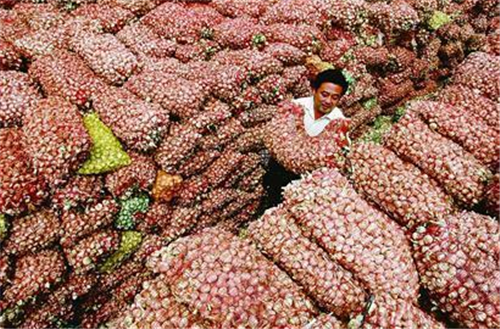Price surge in some agricultural products such as garlic and mung beans would have a limited impact on China's overall inflation, said Peng Sen, vice minister of the National Development and Reform Commission (NDRC), the national economic planner.
 |
|
A farmercarries a bag of garlic
|
The consumer price index (CPI), major gauge of China's inflation, would not be much affected by the price surge because the consumption of these agricultural products was relatively low and demand flexible, Peng told Xinhua in an exclusive interview.
China's CPI rose 2.4 percent year on year in March and the growth for April accelerated to 2.8 percent, according to statistics from the National Bureau of Statistics.
China has seen sharp rises in prices of non-glutinous rice, corn, garlic, mung bean, vegetables and some traditional Chinese medicine since the end of last year, he said.
Peng attributed the price surge to adverse weather conditions and market speculation.
The speculative capital was picking up "new targets" after retreating from the country's securities and property markets in light of the volatile stock market and strengthened regulation to curb booming property prices, he said.
However, Peng said "China has the foundation to achieve the annual CPI target of about 3 percent for 2010" and the government would work to ensure the overall prices basically stable.
The NDRC has told local governments to step up efforts to strengthen market monitoring and clamp down on speculation activities.